Talks currently underway in Thailand will help shape a new scientific panel to advise governments on one of the world’s most pressing issues: pollution.
The World Health Organization (WHO) estimates that air pollution is responsible for around seven million deaths per year, while exposure to other hazardous chemicals causes a further two million deaths annually. These figures help explain why pollution is often described as the third planetary crisis, alongside climate change and biodiversity loss.
Last March, the UN passed a series of measures aimed at tackling the pollution crisis. As well as plans for a new treaty on ending plastic pollution, these included a resolution to set up a new science–policy panel to advise on managing chemicals and waste, and preventing pollution. The panel will be similar in stature to the IPCC and IPBES – the bodies that produce the world’s most authoritative reports on climate and biodiversity issues, respectively.
The UN Environment Programme (UNEP) wants the new panel to get to work in 2025. The working group charged with forming the panel met for the first time in October, and the latest talks underway in Bangkok will aim to secure funding from UN member states and hone the draft plans for the panel’s scope and procedures. The plans will be further refined in numerous regional and international meeting, concluding at the end of 2024.
Getting scientists in the room
The main aim of the panel will be to ensure that scientists are involved in a strategic global approach to chemicals management explains Camilla Alexander-White, an expert on chemicals policy at the Royal Society of Chemistry (RSC).
Alexander-White notes that many previous international efforts surrounding chemicals management stalled due to the lack of scientific expertise available to guide policymakers. ‘You’d go to a meeting and there’s hardly any scientists in the room. Industry is not in the room,’ she says. ‘So it just ends up with politicians talking about things that are nice to do, but they don’t really know how to do them because the right people aren’t there.’
The RSC was a prominent campaigner for the creation of the new panel, and in December hosted the Burlington Consensus 2 meeting of scientists, industry experts and policymakers to share ideas on how the future panel could operate.
Addressing this meeting, the UK minister for environmental quality and resilience, Rebecca Pow, highlighted the three interlinked crises of climate change, biodiversity loss and pollution that the planet is currently facing. She noted that while climate change and biodiversity have the IPCC and the IPBES, the lack of such a body for pollution and chemicals management ‘hampers our ability to fill knowledge gaps and spot risks and opportunities’.
‘[The new panel] will significantly raise the profile of pollution with the public and policymakers, make key advice available at a faster pace, minimise adverse outcomes and promote sustainable and green solutions,’ added Pow.
Scope setting
If the panel is to be up and running by 2025, a lot of work remains to be done over the next two years.
Back in October, the first meeting of UNEP’s working group involved 500 participants from over 80 member states, as well as experts from international organisations, academia and industry. The meeting saw the election of several officers to help steer discussions, although the election of a chairperson for the working group was delayed due to apparent political obstruction by one member state.
The Bangkok meeting should finally see the election of a chairperson, as well as commitments from member states to finance the panel. Beyond this, important discussions will begin on the exact remit of the panel.
According to Bob Watson, a former chair of both the IPCC and IPBES, the breadth of issues surrounding chemicals, waste and pollution, makes this an even more complex problem than setting up the climate change and biodiversity panels.
‘We know what the big issues of climate are. We know the big issues on biodiversity,’ says Watson. ‘But which chemicals do they want to do? What waste do they want to look at? What pollution do they want to look at? Are they going to look at chemicals, waste and pollution as one holistic interactive system, or three individual systems? You could do it either way.’
Air pollution, lead waste, endocrine disruptors and per- and polyfluoroalkyl substances are some of the areas that the panel is likely to look at, but with tens of thousands of manufactured chemicals used in large volumes around the planet, setting priorities will be a major challenge – especially given the fact that the UN’s 193 member states will each have different opinions on how the panel should work and what it should focus on.
Another key challenge will be ensuring the buy in of industry stakeholders. Alexander-White points out that while much of the data on climate change and biodiversity has been gathered by academics, a large proportion of data on chemicals and waste is held within industry.
‘Our view at the RSC, and most people’s view, is that the industry scientists must be involved here, and the data needs to come out somehow. And so how do you manage that interaction when there will be conflicts of interest at play?’ she says. ‘Resolving how to do that is probably a big theme for this year: how do we involve industry representation without the NGOs and citizens at large thinking that the process is biased or being steered unduly by industry?’
Gathering expertise
Watson is currently assembling a technical advisory group of around 15 to 20 people to help advise senior UNEP officials as the process of establishing the new panel continues. ‘We’re tending to go after [people from] organisations that have both got practical experience on the ground and/or lots of intellectual thinking,’ says Watson.
Organisations that Watson has approached include the World Bank, which is heavily involved in pollution prevention in developing countries, and the RSC, which has a network of over 50,000 chemistry professionals worldwide, as well as steering roles in the Commonwealth Chemistry network and the Pan Africa Chemistry Network. Additionally, the technical advisory group is likely to include a representative from UNEP itself and the WHO, among others.
‘We want to make sure we have good gender balance, I’ve always thought that’s important, and good geographic balance as well – we don’t want this to be dominated by white males from North America and Europe,’ says Watson. ‘So we need people from Latin America, Asia, Africa, and Europe and North America, of course.’
It’s a widely held view that involving a broad range of voices and expertise is essential for developing the principals by which the panel operates. It will also be key to the work of the panel itself.
‘The nature of the work that gets done in these panels involves typically about 200–300 scientists. It’s a big effort over two to three years to bring all of the evidence together,’ says Alexander-White. ‘Now, there’s a real desire to get specialists from indigenous communities, those developing areas that suffer most when waste is dumped on them from other parts of the world, or where practices are not as well regulated as they might be.’
Watson and Alexander-White both suggest that scientists anywhere in the world who feel they have relevant expertise should get involved to help shape the process. This can be done in a number of ways. One would be to directly contact a relevant government agency or representative that is representing their country in the process – for example, Defra in the UK. Organisations can also become UNEP accredited to participate in the process itself. Alternatively, those interested can contact bodies like the RSC that are already involved in the process, says Alexander-White. ‘We can work as a representative of their voice if they let us know what their views, opinions and evidence is,’ she adds.





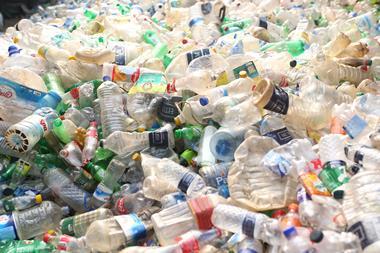

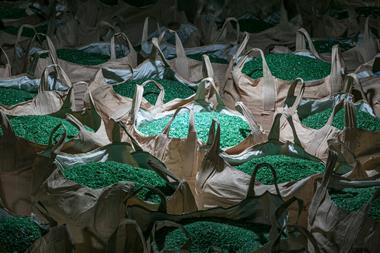
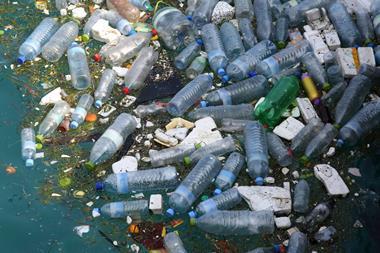
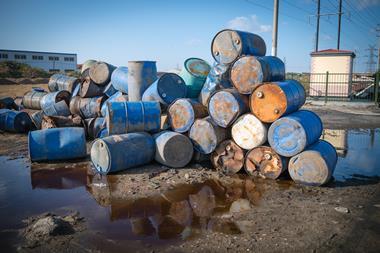
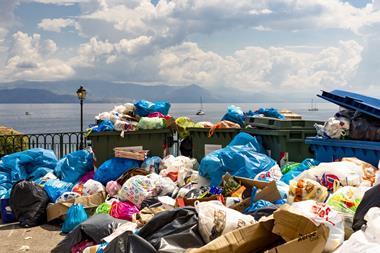






No comments yet